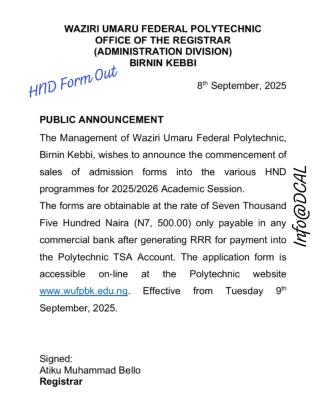In a move that has stirred fresh debate across Nigeria’s education sector, the Academic Staff Union of Universities (ASUU) has declared Tuesday, August 26, 2025, as a nationwide day of protest. This decision is set to affect virtually all public universities in the country, as lecturers, students, and stakeholders brace themselves for another showdown with the Federal Government over unmet promises.
Why is ASUU Protesting Again?
At the heart of ASUU’s decision lies the government’s failure to implement long-standing agreements dating back as far as the 2009 FGN-ASUU deal. Over the years, several key issues have remained unresolved, and lecturers say they have simply had enough. Some of the major concerns include:
- Unpaid Salaries and Arrears: Many lecturers are still owed backlogs of salaries, allowances, and promotion arrears, despite repeated government assurances.
- University Autonomy: ASUU continues to insist that universities must remain independent in their financial and administrative management, free from excessive government interference.
- Funding for Infrastructure and Research: Many public universities still grapple with dilapidated lecture halls, poorly equipped laboratories, and lack of research grants.
- Rejection of Loan Schemes: Recently, the Federal Government introduced a ₦10 million loan scheme under the Tertiary Institutions Staff Support Fund (TISSF), but ASUU rejected it outright, describing it as a “distraction” from their real demands.
What Will Happen on August 26?
According to ASUU’s directive, the protest will be peaceful, campus-based, and nationwide. This means that each university will organize rallies, marches, and sensitization events within their environment to draw attention to their grievances.
Students should expect to see:
- Lecturers and union leaders marching within campuses with banners and placards.
- Press briefings and solidarity speeches at university gates.
- A possible disruption of academic activities for the day.
Could This Lead to a Strike?
The protest is being described as a warning shot. However, ASUU has made it clear that if the government continues to ignore its demands, a full-blown nationwide strike could follow. For students, this possibility is particularly worrying, as past ASUU strikes have lasted for months, leading to disrupted calendars, delayed graduations, and prolonged academic years.
What Does This Mean for Students?
While some students express frustration that protests and strikes often affect them the most, others see this as a necessary action to force the government to prioritize education.
Possible impacts include:
- Temporary halt in lectures and practical sessions.
- Postponement of tests, continuous assessments, or planned examinations.
- Increased uncertainty about the academic calendar.
- A wave of activism, as student bodies like NANS may join in solidarity.
For many students, the protest will be both an inconvenience and an eye-opener—a chance to see how educational policies directly affect their lives.
Voices From the Campus
Some students have already begun sharing their opinions:
- “We’re tired of hearing about ASUU strikes every year. If the government can meet their demands once and for all, all this drama will end,” said Joy, a 300-level student of Economics.
- “Honestly, I support the protest. Our classrooms are overcrowded, we lack proper facilities, and lecturers are underpaid. How can quality education thrive in such conditions?” asked Ibrahim, a 400-level Engineering student.
- “It’s frustrating because we don’t know when we’ll graduate. Every time ASUU and FG clash, it’s the students who suffer the most,” added Chidera, a final-year Law student.
What Happens Next?
The ball is now in the government’s court. If officials move swiftly to address ASUU’s concerns, the August 26 protest may remain a one-day event. However, failure to act could push the union into announcing a total strike, something both lecturers and students are wary of.
Final Thoughts
The upcoming protest is more than just another ASUU vs. FG clash; it reflects the larger question of how much value Nigeria places on education. For decades, underfunding, poor facilities, and neglect of lecturers’ welfare have plagued universities, leaving students stuck in endless cycles of strikes and protests.
As August 26 approaches, one thing is certain: Nigeria’s campuses will once again become the center of national attention.
👉 Students are encouraged to stay alert, follow their university updates, and prepare for possible disruptions.






